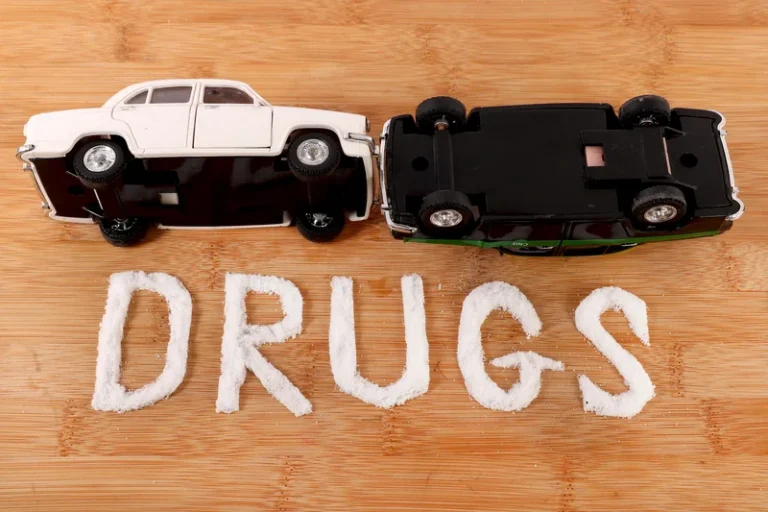
Several studies have also shown that the lungs are highly vulnerable to the effects of alcohol. For example, alcohol can reduce the ability of respiratory epithelium cells to remove mucous from the lungs, which can directly damage lung tissue and weaken the proper functioning of the lungs over time. Although this chronic weakening of lung function may not cause any immediate symptoms, these effects can manifest when a severe respiratory infection occurs.
Can You Mix Prednisone and Alcohol? The Risks of Drinking on Steroids

Likewise, male rats fed an ethanol-containing liquid diet (8.7% v/v for up to 4 weeks) experienced a progressive loss of both CD4+ and CD8+ T cells (Boyadjieva, Dokur et al. 2002). Increased apoptosis of T and B lymphocytes isolated from the thymus, spleen, and lymph nodes of female mice was observed following 16 hour culture with 0.4%-2% ethanol, concentrations 5 to 25 times https://ecosoberhouse.com/ the definition of intoxication (Slukvin and Jerrells 1995). In contrast to these observations, moderate consumption of beer (330mL for women and 660mL for men) for 30 days resulted in a significant increase in the number of leukocytes, mature CD3+ T lymphocytes, neutrophils and basophils in women, while only basophils were increased in men (Romeo, Warnberg et al. 2007).

Impact of AUD on Adaptive Immune Responses
The immune response, therefore, would be one of the main channels through which the gut-brain axis establishes communication [108]. Interestingly, central neuroinflammation is maintained after cessation of alcohol consumption, compared to peripheral activation [114] and during periods of abstinence [108]. Finally, in relation to the effect of alcohol on neuroinflammation, a study by Lowe et al. showed an attenuation of alcohol-induced neuroinflammation after reducing the gut bacterial load, as a result of antibiotic does alcohol weaken your immune system treatment [115]. We could hypothesize that by reducing the gut bacterial load, lower amounts of bacterial components would reach the systemic circulation, leading to reduced activation of pro-inflammatory components. Future studies aimed at uncovering the mechanisms underlying dose-dependent modulation of immune function should also investigate changes in gene expression patterns, as well as factors that regulate gene expression including microRNAs and epigenetic changes within specific immune cell populations.
- Th17 cells also can be considered a type of helper T cells characterized by the production of interleukin 17.
- Many gaps remain in our understanding of the stress response, its physiological basis in the HPA, axis and its role in modulating the effects of ethanol on host immunity.
- Analyses of alcohol’s diverse effects on various components of the immune system provide insight into the factors that lead to a greater risk of infection in the alcohol-abusing population.
- Additional analyses detected evidence that T-cell proliferation in the spleen was increased in alcohol-consuming mice (Zhang and Meadows 2005).
Modulation of adaptive immunity by alcohol
- Chronic alcohol consumption reduces B-cell numbers, decreases antigen-specific antibody responses, increases the production of auto-antibodies, and interferes with B-cell development and maturation.
- However, similarly to the in vitro studies described above, at 2 and 5 hours post-binge the numbers of circulating monocytes were reduced and levels of antiinflammatory IL-10 levels were increased (Afshar, Richards et al. 2014).
- Numerous studies have demonstrated that ethanol, its metabolites, and alterations of the gut microbiome suppress intestinal tight junction protein expression [58,59,60,61] producing that the epithelial layer becomes leaky or “permeable”.
- The presence of ethanol in an in vitro culture of spleen cells also suppressed NK cell cytotoxic activity against MADB106 tumor cells (Yirmiya et al. 1992).
The activities of T-cells and B-cells are intricately intertwined through the actions of various cytokines to orchestrate an effective immune response to any pathogen the organism may encounter. For instance, IL-1 induces HPA axis activation and glucocorticoid release that suppresses the immune system (Sapolsky, Rivier et al. 1987). Cytokines are also proposed to cross the blood-brain barrier and produce sickness behavior (Watkins, Maier et al. 1995), which is comorbid with AUD (Dantzer, Bluthe et al. 1998). Ethanol administration (4g/kg) in male rats increased IL-6 but decreased TNF-α expression in PVN, an effect that was blunted or reversed after long-term ethanol self-administration (Doremus-Fitzwater, Buck et al. 2014).
Male rats on a liquid diet with 35% of calories coming from ethanol also showed enhanced mRNA half-life and protein expression of LPS-induced TNF-α by increasing TNF-α in liver monocytes/macrophages (Kishore, McMullen et al. 2001). It is now thought that alcohol-induced sterile danger signals contribute to the proinflammatory cytokine activation seen after chronic alcohol use in various organs (e.g., liver, intestine, and brain). This hypothesis also is supported by findings that in hepatocytes, alcohol exposure results in a rapid induction of apoptosis, which precedes induction of inflammatory cytokines (Caradonna et al. 2000; González-Reimers et al. 2014; Marchettia et al. 2013; Petrasek et al. 2013).
Effect of alcohol consumption on systemic markers of inflammation
These different layers of interaction make validation of the mechanisms by which alcohol affects immune function challenging. Significant differences between the immune system of the mouse—the primary model organism used in immune studies—and that of humans also complicate the translation of experimental results from these animals to humans. Moreover, the wide-ranging roles of the immune system present significant challenges for designing interventions that target immune pathways without producing undesirable side effects.

Alcohol and the Adaptive Immune Response
“With COVID-19, alcohol is likely to interfere with an individual’s ability to clear SARS-CoV-2 and cause people to suffer worse outcomes, including ARDS, which commonly results in death,” Edelman said. When the body is unable to clear a pathogen, an infection can worsen and lead to more severe, life threatening complications. It’s important to monitor drinking behavior and consider how it affects health, relationships, and work or school. Avoiding carbonation, artificial sugars, mixed drinks that include lots of ingredients, and drinking through a straw may all reduce the bloating that can occur after drinking. 3Alcohol alters not only phagocytosis mediated by neutrophils but also phagocytosis by macrophages. Alcoholics Anonymous is available almost everywhere and provides a place to openly and nonjudgmentally discuss alcohol issues with others who have alcohol use disorder.

Rodents have a much shorter life span and often require forced (i.e., not initiated by the animal) exposure to alcohol, which is stressful. Moreover, a recent systematic comparison examining gene expression changes found that temporal gene response patterns to trauma, burns, and endotoxemia in mouse models correlated poorly with the human conditions (Seok, Warren et al. 2013). Nonhuman primates, on the other hand, voluntarily consume different amounts of alcohol and allow us to conduct studies in an outbred species that shares significant physiological and genetic homology with humans while maintaining rigorous control over diet and other environmental cues. Moreover, immune systems of several nonhuman primate species are similar to those of humans and these animals are susceptible to several clinically important pathogens making them a valuable model to study the impact of ethanol on immunity (Hein and Griebel 2003). Costly requirements such as dedicated facilities to house the animals, experienced personnel to perform specialized procedures, and compliance with high standards of care must be considered. Vitamin E is one of the most effective antioxidants and its deficiency exacerbates freeradical damage impairing the ability of T cells to respond to pathogenic challenge (Mocchegiani, Costarelli et al. 2014).
Similarly, plasma adiponectin concentration was increased after 28 days of daily consumption of 450mL of red wine compared with dealcoholized red wine amongst 34 men, in the absence of changes in subcutaneous and abdominal fat contents as well as body weight (Beulens, van Beers et al. 2006). Much progress has been made in elucidating the relationship between alcohol consumption and immune function and how this interaction affects human health. Normal immune function hinges on bidirectional communication of immune cells with nonimmune cells at the local level, as well as crosstalk between the brain and the periphery.





